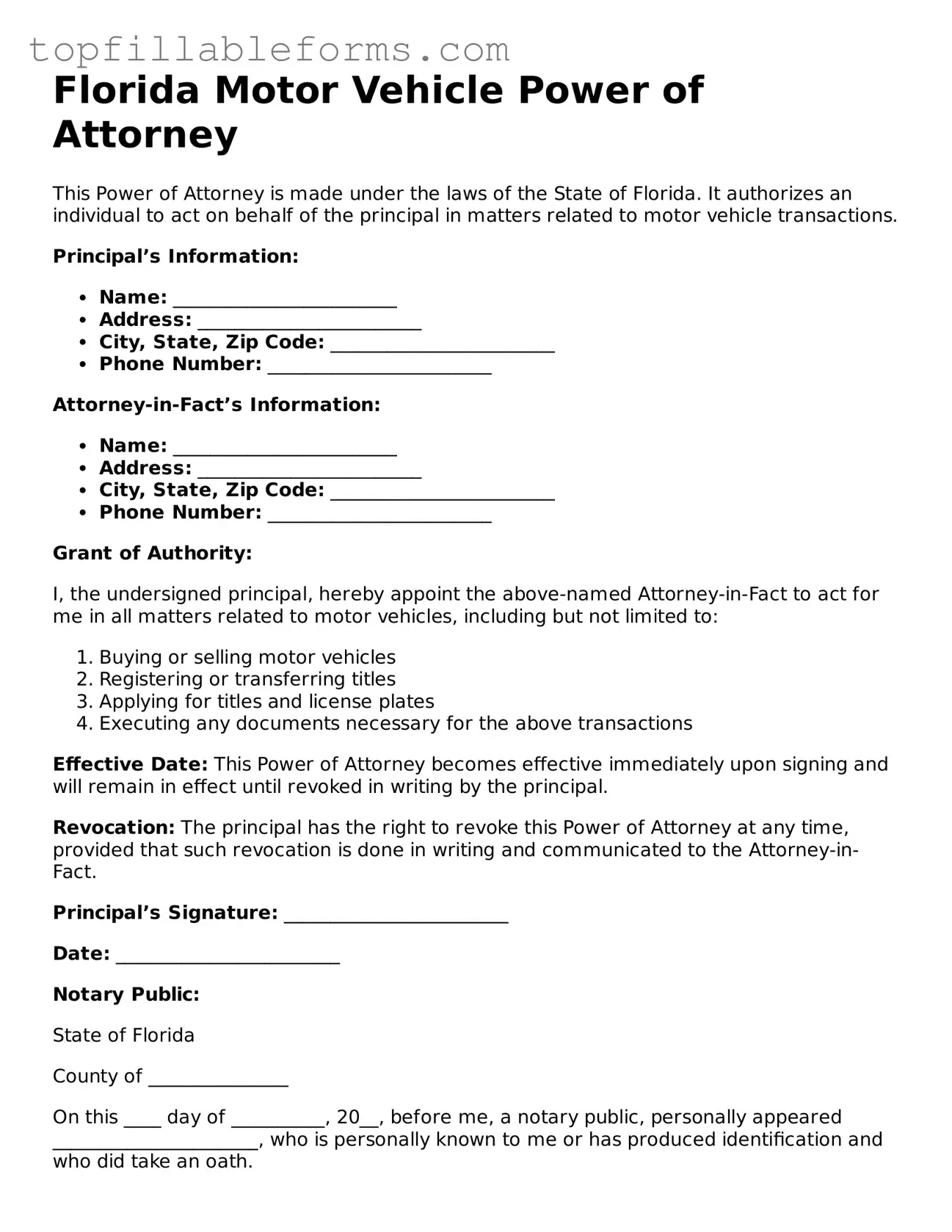Attorney-Verified Motor Vehicle Power of Attorney Template for Florida
The Florida Motor Vehicle Power of Attorney form is a legal document that allows an individual to designate another person to act on their behalf regarding motor vehicle transactions. This form is essential for facilitating the transfer of ownership, registration, and other related activities without the principal's direct involvement. Understanding its purpose and proper usage is crucial for ensuring compliance with Florida's motor vehicle laws.
Open Motor Vehicle Power of Attorney Editor Here

Attorney-Verified Motor Vehicle Power of Attorney Template for Florida
Open Motor Vehicle Power of Attorney Editor Here
Finish the form now and be done
Finish your Motor Vehicle Power of Attorney online by editing, saving, and downloading fast.
Open Motor Vehicle Power of Attorney Editor Here
or
▼ PDF File
